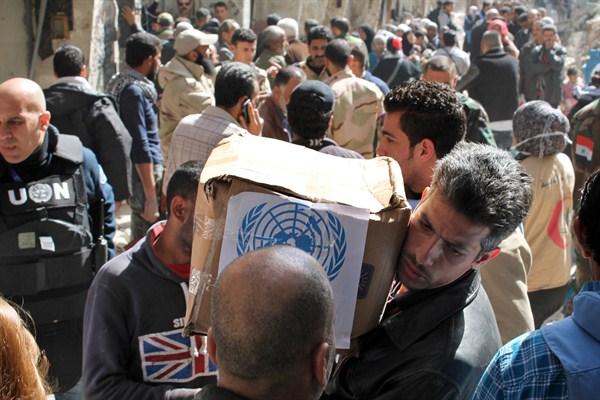In mid-July, the U.N. Security Council unanimously voted to allow humanitarian aid delivery to Syrians in rebel-held areas without Syrian government consent, through four border crossings from Turkey, Iraq and Jordan. In an email interview, Dr. Hannah Vaughan-Lee, a humanitarian practitioner and academic, discussed the challenges ahead for the cross-border aid operation.
WPR: Besides ongoing fighting, what obstacles do convoys face bringing aid to rebel-held areas in Syria?
Hannah Vaughan-Lee: Crossing the border into Syria is only the first in a series of steps for delivering assistance to conflict-affected populations in rebel-held areas. One immediate and ongoing challenge will be negotiations over access and how to transport and distribute the humanitarian aid. Relief agencies will not only have to take into consideration and negotiate with the armed group that controls the area where the aid is to be distributed, but also with those groups controlling the territory and roadblocks that the convoys will need to pass through.

